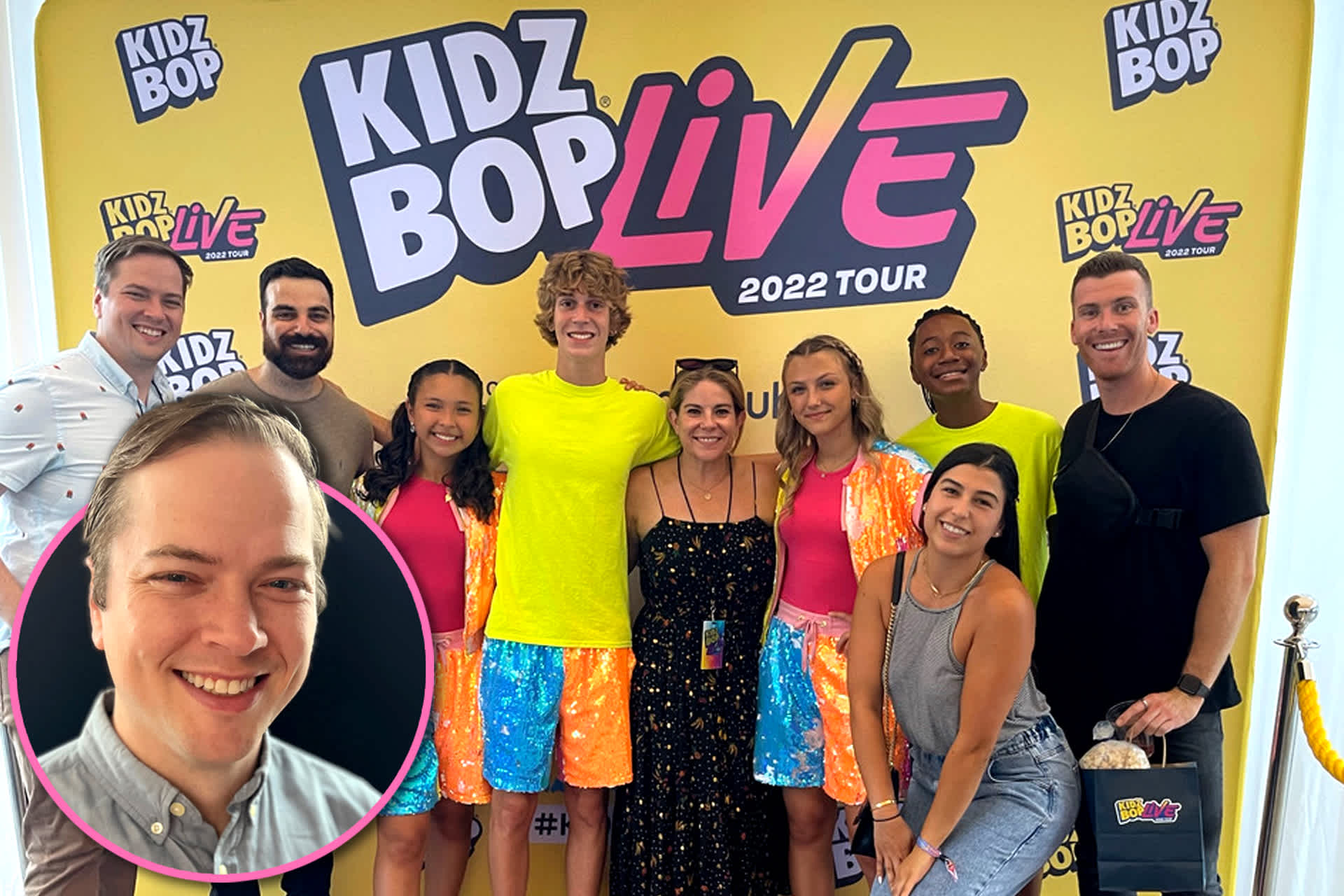Music Man

How do business leaders figure out what goods and services people want to buy? They do market research, which means looking at information about products in the marketplace. Market research is an important part of Rob Dekker’s role as vice president of marketing for Kidz Bop. Founded in 2001, the company releases family-friendly cover versions of popular songs, sung by kids. And it produces live concert tours by kid performers.
“I've always loved music,” Dekker told Your Hot Job. “It’s so central to how people identify themselves, create community, and mark special occasions. So I think it's so cool that my job is helping figure out what song someone might like—that might shape their day or whole personality—and then I get to help make sure they hear it at the right time.”
Dekker joined Kidz Bop in 2016. “The music industry is a creative field that’s heavily reliant on relationships,” he says. “It can be a tough industry to get a foot in the door. But generally, the people that succeed are motivated by a love of music, and they start small, whether that’s attending shows, playing in a band, helping your friend record a song, or being active in a fan club.”

Dekker speaks from experience. One of his earliest memories is reaching up to press the keys on his grandmother’s piano. On family road trips, he loved listening to the music his parents played by the Beatles, the Who, and Bruce Springsteen. In college at Syracuse University, in New York, Dekker sang in a choir and played bass in the pep band at basketball games. He was in a music business program that involved taking classes in marketing and statistics. He also did internships with music companies. These experiences paved his career path.
Does Dekker’s job sound like music to your ears? Here, he offers tips on doing market research in any industry, and shares specific notes for those interested in pursuing a career in the music industry.
Be curious and understand statistics. Part of research is asking the right questions. Market researchers interview people, write online surveys, and even just note how people respond to something, like a video, show, or song. Lots of those answers come back in the form of numbers, or statistics.
Love learning. As a market researcher, your job is basically to learn. So it’s really important to have a love of learning and want to know why people like or dislike things. For music, being a fan is a great start, and knowing history and trends can be really helpful. People often like new music that reminds them of other music they've heard. If you’re familiar with that history, you can make those connections and better understand what will be popular, and why.
Take in information. With any market research, you gather data from lots of sources in order to make a decision. Some data is qualitative, which means it’s based on observations and statements. When we’re picking songs for an album or tour, that qualitative data could be a video of how excited a kid was dancing to a particular song. We combine that information with quantitative data, which is anything that can be counted. When we’re deciding if we're going to record a song, we’ll look at how many views the song has on YouTube, how many streams on Spotify, or how many creates on TikTok. If we’re deciding which of our songs to feature on our live tour, we’ll look at how many times a song has been streamed, viewed, or liked. There’s software in the music industry that pulls all of that data into one place.
Expect change. One challenging part of my job is that how people find out about and listen to music is always changing, so how I do my job has to change with that. I’m constantly learning about new technology, apps, streaming services, and ways to advertise. You can’t just become an expert—you have to stay an expert, too!

